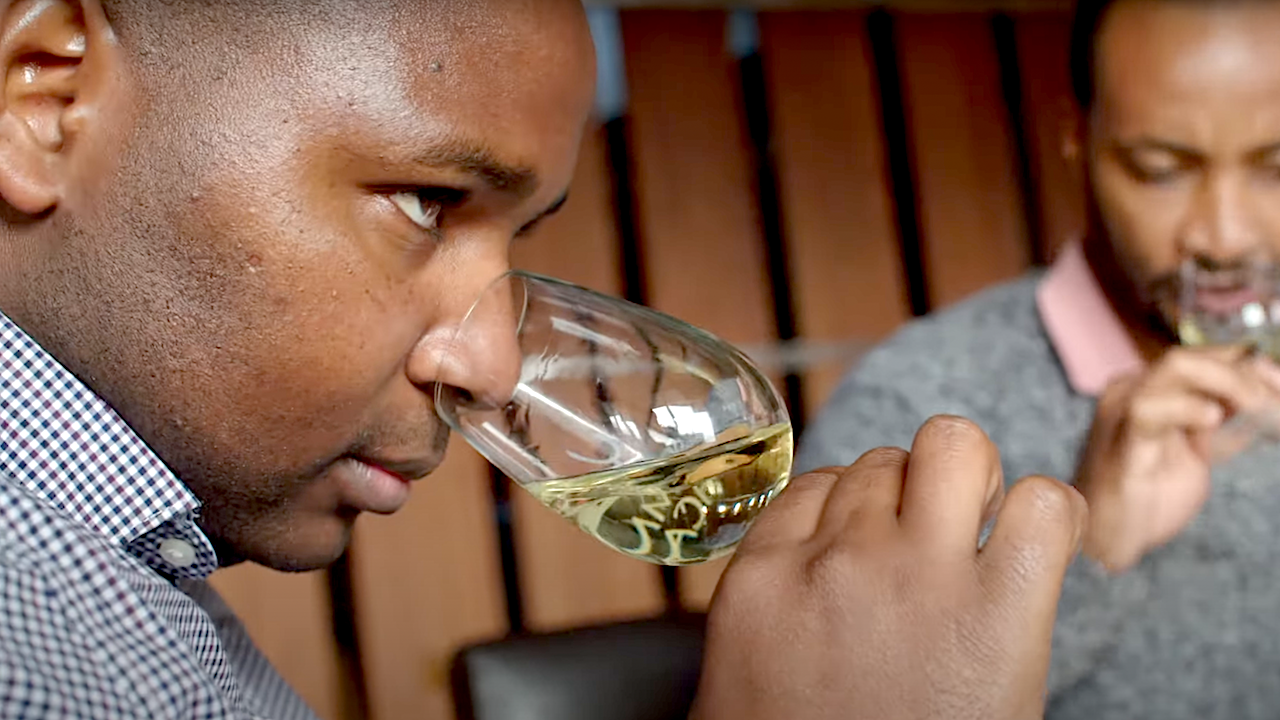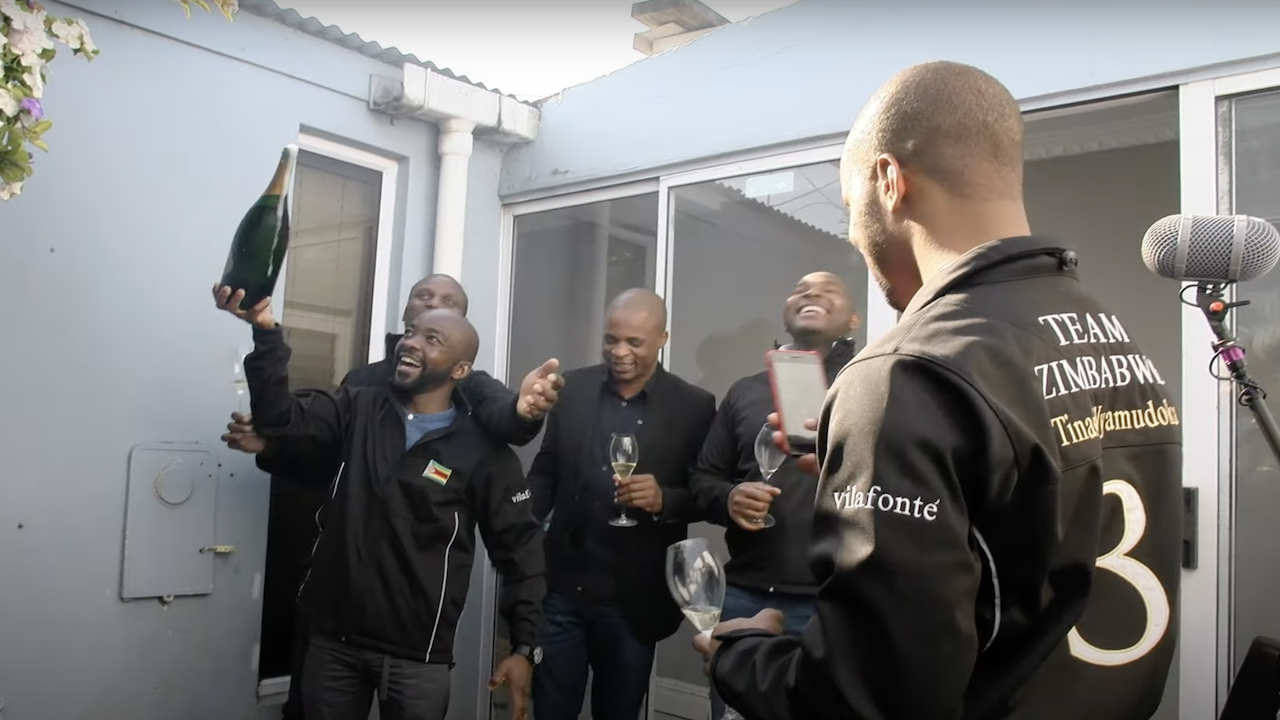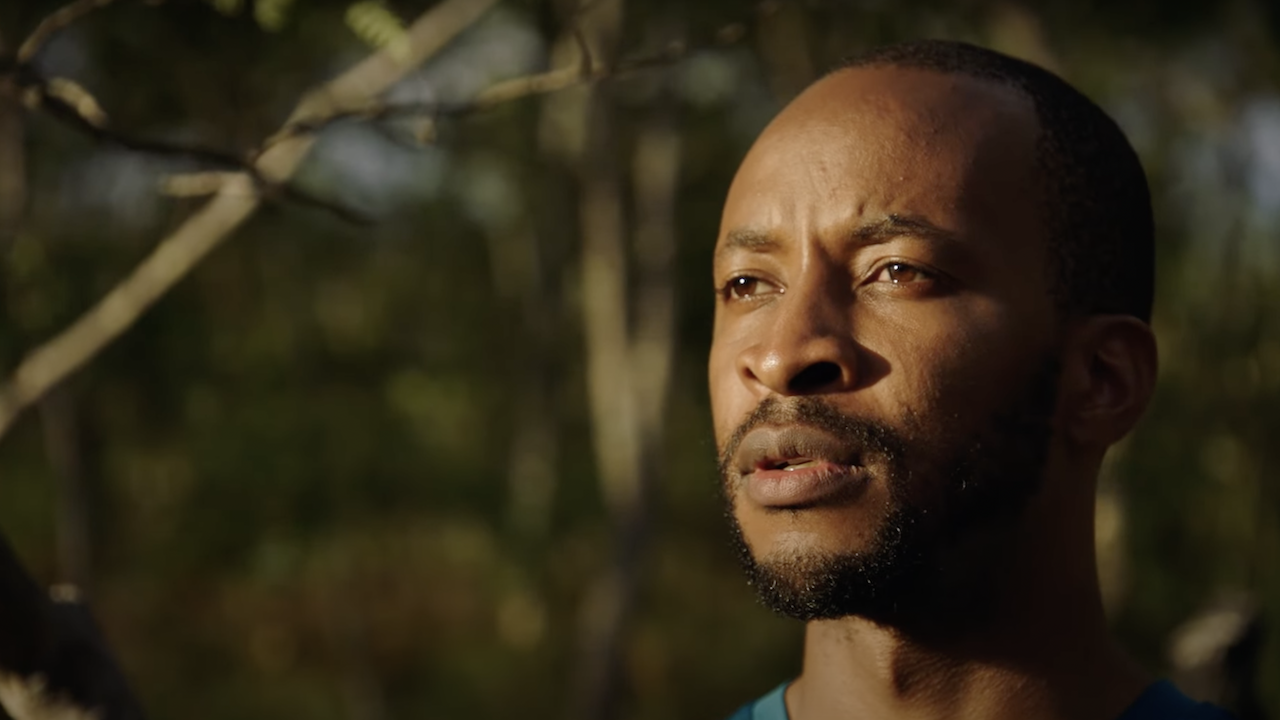Blind Ambition finds hope in a bottle—or several, actually

A team of underdog sommeliers from Zimbabwe take on the “Plonk Olympics” in this uplifting doco, which went down a treat with reviewer Travis Johnson. Blind Ambition is now pouring into cinemas.
It feels a little cheap to compare this documentary with the old John Candy joint Cool Runnings—if nothing else, because this is about Zimbabwean sommeliers, not Jamaican bobsledders—but it’s difficult to gainsay the similarities in tone and catharsis. Call it a necessary evil of the marketing machine: if you like uplifting against-all-odds underdog stories, you’ll almost certainly enjoy Blind Ambition.
Directed by Robert Coe and Warwick Ross—Ross co-directed the 2013 wine doco Red Obsession, while Coe was executive producer—Blind Ambition follows the fortunes of four Zimbabwean men Pardon Taguzu, Joseph Dhafana, Marlvin Gwese, and Tinashe Nyamudoka as they prepare for a run at the 2017 World Blind Wine Tasting Championships (WBWTC) in Burgundy, essentially the Plonk Olympics.
Each man is working as sommelier in Capetown, South Africa when we meet them, and each is a refugee, having fled Robert Mugabe’s brutal regime for a better life. The essential thrust of the narrative is obvious: can these committed, courageous, but unarguably disadvantaged dudes take on the snooty, sniffy, Eurocentric wine world and win? That’s not just an amazing act of alliteration—it’s an irresistible story hook.
We follow the four from backyard blind tastings around the barbecue to studying under mentors like South African coach Jean Vincent Ridon and florid French wine expert Denis Garret, who is simply destined to be played by Gerard Depardieu if they ever make a fictionalised feature out of this thing. It is something for even a non-wine snob to see the four compare notes and opinions and then narrow down an anonymous glassful’s country, region, variety, and vintage, like slightly sozzled Sherlocks (speaking for myself, the only tasting notes I personally care about are “red”, “dry”, and “lots”).

When they finally get to the Championships, they are the only Black African team in the field, a marked and quite uncomfortable contrast that forces us as viewers to question a few assumptions. While the traditional class barriers to the wine world are lower than they used to be, it’s still a rich person’s game, but it’s also clearly a white person’s game for the most part.
Which, as the film takes pains to portray, is a loss. Winemaking is not just an industry, it is a culture and an art form—a creative pursuit. The experiences and philosophies of winemakers and winetakers commingle in the communion of drinking, and if we are to take the act of tasting as a genuine artistic experience, then it stands to reason that a greater and more diverse talent pool in the wine world can only lead to good.

Framed like that, the personal journeys of our four leads are not just backstory, but integral to our understanding of who they are and why they have chosen this particular creative niche. We can apprehend how Marlvin’s devout faith informs his choices; we understand Tinashe’s dream of growing vines on his ancestral land in an act honouring and invoking kumusha, a Zimbabwe concept not dissimilar to the Indigenous Australian idea of country.
More than just a film about wine, Blind Ambition champions the very notions of cultural exchange and authenticity, making for a very tasty cinematic drop indeed.




















